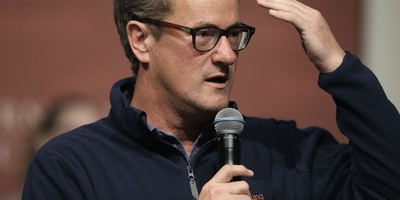It is one of the greatest indictments of today’s poisonous political environment that Congressional Democrats and Republicans cannot even come together to investigate the murders of four American citizens, including a U.S. Ambassador, in Benghazi, Libya.
One doesn’t have to be too old to remember a time when Democrats and Republicans put aside narrow partisan interests to present a united position on foreign policy and national security. These days, the Speaker of the House of Representatives, upon announcing the formation of a new select committee tasked with investigating the 2012 murders in Libya, had to immediately defend himself against Democratic portrayals of the Committee as a partisan stunt.
“This is all about getting to the truth. It's not going to be a sideshow,” Boehner insisted. “It's not going to be a circus. This is a serious investigation.”
Yet even as the Speaker was denying that the circus was in town, the calliope at the Congressional Republicans’ campaign headquarters was already beginning to play while workers pitched tents and laid down sawdust.
The carnival barker was at the top of the National Republican Congressional Committee’s website, inviting the passing rubes to sign up to become “Benghazi Watchdogs.”
“Help fight liberals by donating today!” the NRCC’s website screamed.
Once users poked their heads into the NRCC’s tent, they got to hear the pitch: “You’re now a Benghazi Watchdog” the user is told. “Let’s go after Obama and Hillary Clinton. Help us fight them now.” The inevitable request to donate came next.
It was a shameless, tin-eared exploitation of human tragedy and national embarrassment, a self-imposed foul that played right into Democrats’ portrayal of the Select Committee investigation as a partisan witch hunt.
Recommended
As a practical matter, it diverted the nation’s attention from the real issues here: the murders of four U.S. citizens, including a U.S. Ambassador, in a very dangerous place at a very sensitive time and the apparent dissimulation by the government in explaining the murders.
Within a week, the party’s senior leadership was dodging questions about whether the NRCC’s “Benghazi Warrior” fundraising pitch ought to be withdrawn. Soon, the nation was treated to the spectacle of the most powerful Republican in the House, John Boehner, denying that he had any involvement in his own party’s fundraising Committee.
All of this is collateral damage; however, to the relentless fundraising machine that is the American political process today -- on both sides of the political aisle.
Some Democrat says something about taxes? Send out a mass e-mail. The immigration bill is coming before the House? Get a phone solicitation going. Four Americans dead and nobody can explain what happened? Tell the folks to donate and become “Benghazi Watchdogs.” Whatever Washington has done to you, the political fundraising consultants have an email pitch ready that’ll make you feel better: just send money.
The cynicism of the whole process was laid bare by former NRCC chair Tom Davis, who admitted to the Washington Post that pitches like the ham-handed “Benghazi Watchdog” are “not good optics.” Nevertheless, the former Virginia Congressman said, “If you raise a decent amount of money, you take the hit. That’s how it works.”
Time will tell whether the newly-tapped Chairman of the Select Committee, South Carolina’s Trey Gowdy, will be capable of exerting adult supervision over a House Republican campaign organization that seems to have gone rogue in its voracious and insatiable desire for funds.
Gowdy, a former prosecutor, comes to the job with a solid reputation and a no-nonsense approach, and he minced no words as he waded into the unnecessary fray: “Even in a culture of hyper-partisanship,” he said, there are still “certain things that ought to be above politics, like the murder of our four fellow Americans and like whether or not you can trust what any administration — Republican or Democrat — tells you in the aftermath of a tragedy. That, to me, transcends politics.”
Gowdy has it right. Unlike the team over at the NRCC, Gowdy knows that to be effective in a probe of this significance, Republicans must be like Caesar’s wife, not Caligula.

























Join the conversation as a VIP Member